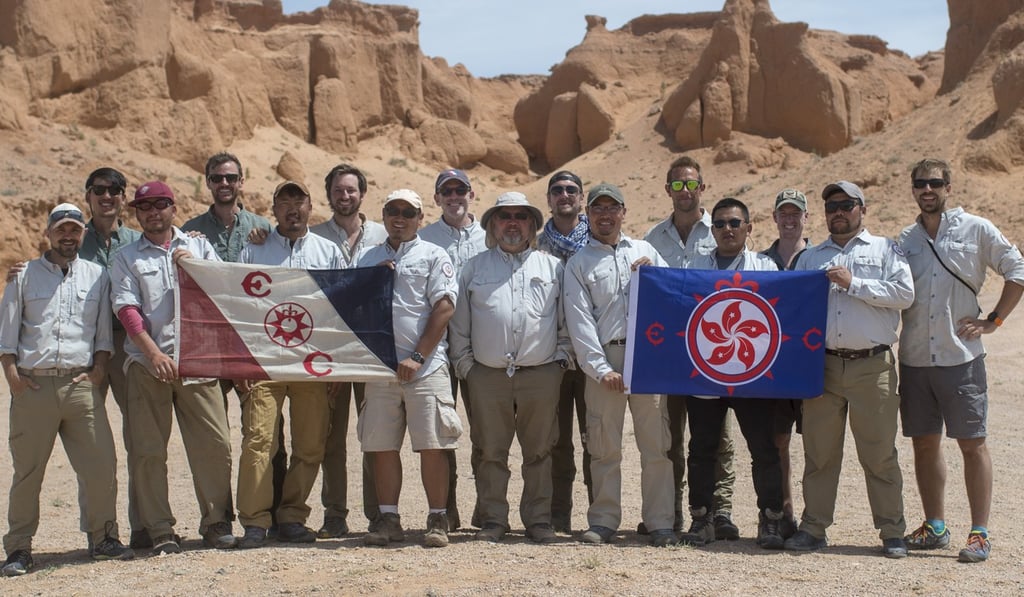Hong Kong scientists and adventurers honoured at Explorers Club awards in New York
- At the event heralded as the ‘Oscars of Exploration’, Explorers Club Hong Kong was awarded a Citation of Merit for a 2018 Gobi desert expedition
- Astronauts Charles Duke and Buzz Aldrin were guests of honour at the gala dinner

New York is a long flight from Hong Kong, especially when it is only for the weekend, but this trip proved to be a special one.
Heralded as the “Oscars of Exploration”, the Explorers Club Annual Dinner is the foremost gathering of scientists and adventurers from all over the world. I had the honour to attend as a member of the Explorers Club Hong Kong chapter, more than 20 of whose members were there to receive the Citation of Merit for a recent expedition into the Gobi desert.
A look at the canapés set the tone: scorpion lollipops, alligator meatballs and maggot muffins were offered next to a platter of roasted iguana with General Tsao’s sauce. More than 1,700 geologists, archaeologists, astronauts, mountaineers and explorers had come together for a weekend of intense discussion and talks.
Proceedings kicked off amid an evening reception at the club’s Upper West Side headquarters, a heritage building full of relics that range from the globe of Norwegian adventurer Thor Heyerdahl – famous for sailing the raft Kon-Tiki across the Pacific Ocean – to a giant taxidermy polar bear. The spirit of expeditions past can be felt in the hallways, and the artefacts afforded a great backdrop for the talks that followed, featuring giant dinosaurs and radioactive-coconut-eating spider crabs.

The highlight of the weekend was the gala dinner. “How many of you have been to the South Pole?” asked Richard Wise, the Explorers Club president, opening the evening's proceedings. A strong show of hands made clear that this was no ordinary audience.